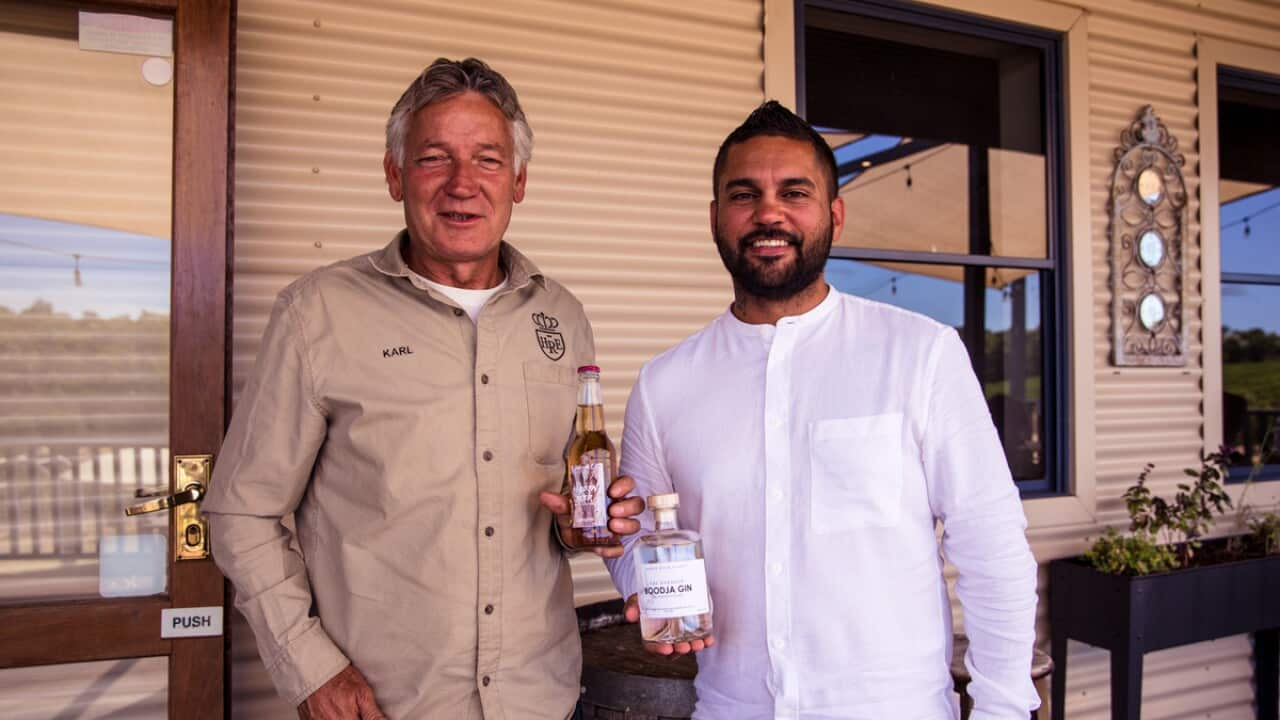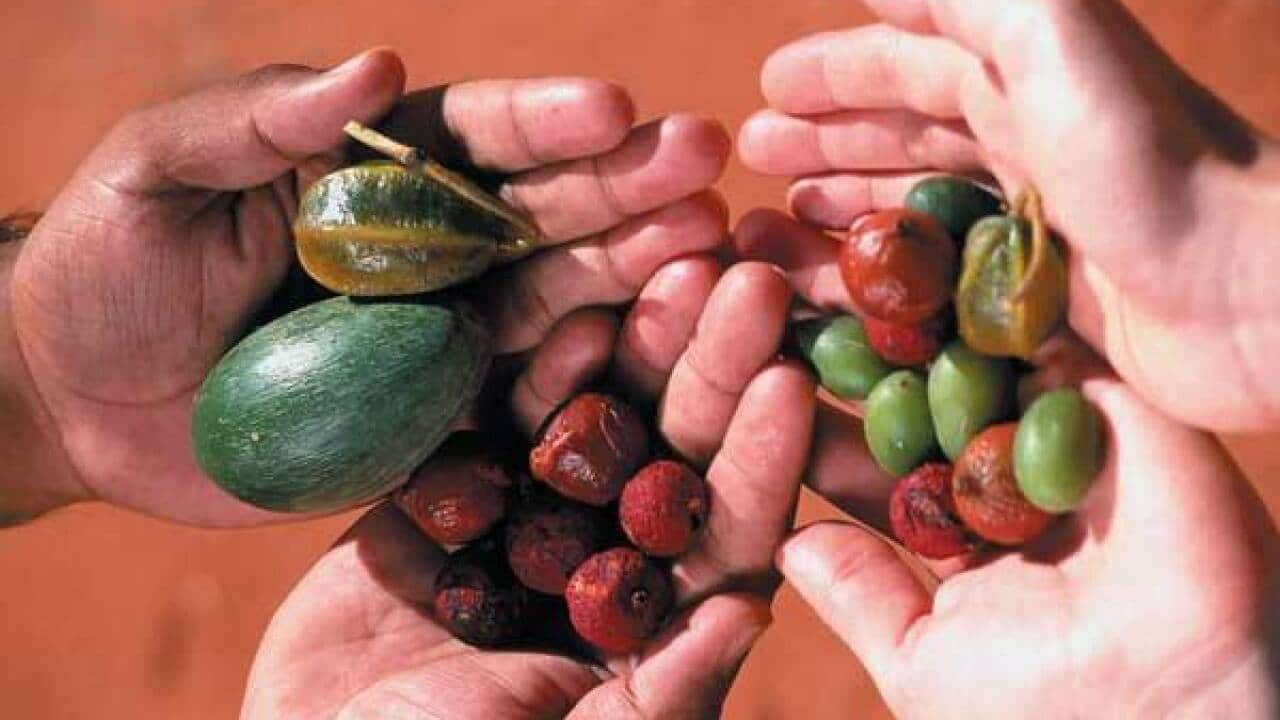Gin is at the peak of its renaissance, and the industry has just become more important than ever. With the global COVID-19 pandemic unfolding, gin distillers have found themselves the unlikely heroes in a hand-sanitiser shortage.
Around the country, they're pivoting their business models to tackle the rising demand for ethanol-based sanitisers.
in the small Western Australian mining community of Collie, about 186 kilometres south-east of Perth, is a collaboration between Phillip Ugle and Narelle Carroll of Beelagu Moort (an Aboriginal wellness and healing company), and Karl and Julie Hillier of the winery.
It's just one of Australia's alcohol providers that have flipped their distilling to help in the shortage. The Forager put Collie on the map with its Australian gin that's 100 per cent connected to Noongar-Wilman country in the southwest of the state. Now it's also supporting their local community and beyond by providing them with free hand sanitiser, including Aboriginal Elders.
The Forager put Collie on the map with its Australian gin that's 100 per cent connected to Noongar-Wilman country in the southwest of the state. Now it's also supporting their local community and beyond by providing them with free hand sanitiser, including Aboriginal Elders.

Using botanicals foraged by a local Noongar Wilman man, The Forager Boodja Gin showcases and supports the local culture. Source: Monique Ceccato
Indigenous Australians living in remote and regional areas of the country are at of being affected by the coronavirus, especially because they experience other health issues at higher rates than other Australians. It's also more difficult for them to access healthcare. Those in their are even more at risk.
Julie Hillier, who's also co-founder of the Aboriginal youth charity, Mila Foundation, tells SBS Food, "We have had to pivot our business significantly due to the coronavirus.
"The good news is that we have turned our small distillery into a hand-sanitiser making facility for our local community, and have been able to get some initial supply to some of our severely high-risk community.
"We work closely with Roelands Village [a former mission about 35 kilometres from Collie in which many of the community are Elders], and...supplied them with ten free 330ml bottles."
We have turned our small distillery into a hand-sanitiser making facility for our local community, and have been able to get some initial supply to some our severely high risk community.
This week, it will also send supplies to Mount Barker Aboriginal Corporation, about 230 kilometres south of Collie.
With the estate and distillery's accommodation temporarily closed and international wine exports put on hold, donating and selling hand sanitiser to communities around Collie has become a core focus.
But, not all is lost for gin lovers. The Forager's second expression of its unique Boodja gin, the Birak Season - known as the hot and dry 'season of the young' - has just been released. Its native flavours come from the root of the balga (grass tree), which gives it a slightly more nutty taste than the previous Kambarang expression.
Phillip Ugle, a traditional custodian of the Noongar Wilman land, explains, "The balga bush was actually used as a food source.
"When it's young, it's like a bush coconut. The white bottom bit that you pull out of the ground is really sweet."
The Boodja Gin range is comprised of six seasons. "It all goes off plants flowering, what kind of animals are around at that time, what medicines are in the bush, what grubs are around – things like this," the 32-year-old says.
It's complete with grapes from the Hillier's Harris River Estate. Julie Hillier explains, "You've got botanicals from Noongar Wilman country, and the base alcohol comes from white grapes grown on the same country," she says.
"The way that we work, the gin is absolutely going to be connected to country, every season, every single time."
Boodja is a word of the Noongar people of Australia's southwest corner that means 'country'. It was chosen to represent the true local nature of the product made on Wilman country that sits in Noongar territory.
The product joins a long lineup of gins that celebrate Australia's unique native flavours while tying culture and tradition into the production process.
The Forager grows and forages the components of its gin on country following local traditions.
Ugle says the decision to take part in The Forager Boodja range (which also includes a beer) with Harris River Estate, stems from wanting to "keep some things back to ourselves.
"But also we have to find these new ways of using our cultural knowledge."
Harris River Estate is working to train the Beelagu Mort-duo in gin making so they can ultimately take over this component of the estate. Ugle is known around Collie for his extensive knowledge of the bush and its properties.
Ugle is known around Collie for his extensive knowledge of the bush and its properties.

Phillip Ugle (right) proudly displays his The Forager 'Boodja' Gin with Karl Hillier of Harris River Estate. Source: Monique Ceccato
"I was out on country with my grandparents and family, learning about the bush since I was about two. Or, even earlier than that – ever since I can remember," Ugle says.
"I had that training right until I was 11, and now I'm the only one in the area that has the full knowledge of the bush plants and medicines around here. There are articles and books you can find, but it's all family knowledge that I know."
We have to find these new ways of using our cultural knowledge.
Ugle is the only person in the initiative who can forage the botanicals for Boodja Gin, and he adheres strictly to Noongar principles. "I always collect according to my culture. We only take what we need," he says.
"That's why we know that these gins will be limited to their season." The first expression of gin was reflective of Kambarang — the long, dry Noongar season that lasts between October and November, and is marked by the flowering of the nuytsia tree (Australian Christmas tree).
The first expression of gin was reflective of Kambarang — the long, dry Noongar season that lasts between October and November, and is marked by the flowering of the nuytsia tree (Australian Christmas tree).

The Forager range includes the Boodja Gin and the Boodja Beer as well. Source: Monique Ceccato
For this, Ugle chose the distinct flavours of the in-season tea tree, peppermint tree and balga root (grass tree root).
CELEBRATING INDIGENOUS CULTURES

How this food-growing technology empowers Indigenous communities
Along with working to share the traditions and flavours of the Noongar people with the wider community, The Forager initiative also works to provide other resources for Collie's Noongar Wilman community.
"A percentage of what we make out of our venture is going to go back to the community to start little programs. Even if it’s just an art class for people," Ugle says.
It's an initiative that's close to his heart. "There are no programs for Noongar people in town right now. It's very limited support. I see my community as having nothing at the moment, and I want to change that."
But The Forager's efforts show the seeds are already being sown.
is a collaboration between Phillip Ugle and Narelle Carroll of Beeluga Moort, and Karl and Julie Hillier at Harris River Estate.
Love the story? Follow the author here: Twitter , Facebook and Instagram . Photographs by Monique Ceccato.
YOU CAN READ MORE HERE

What you need to know about food safety and coronavirus









